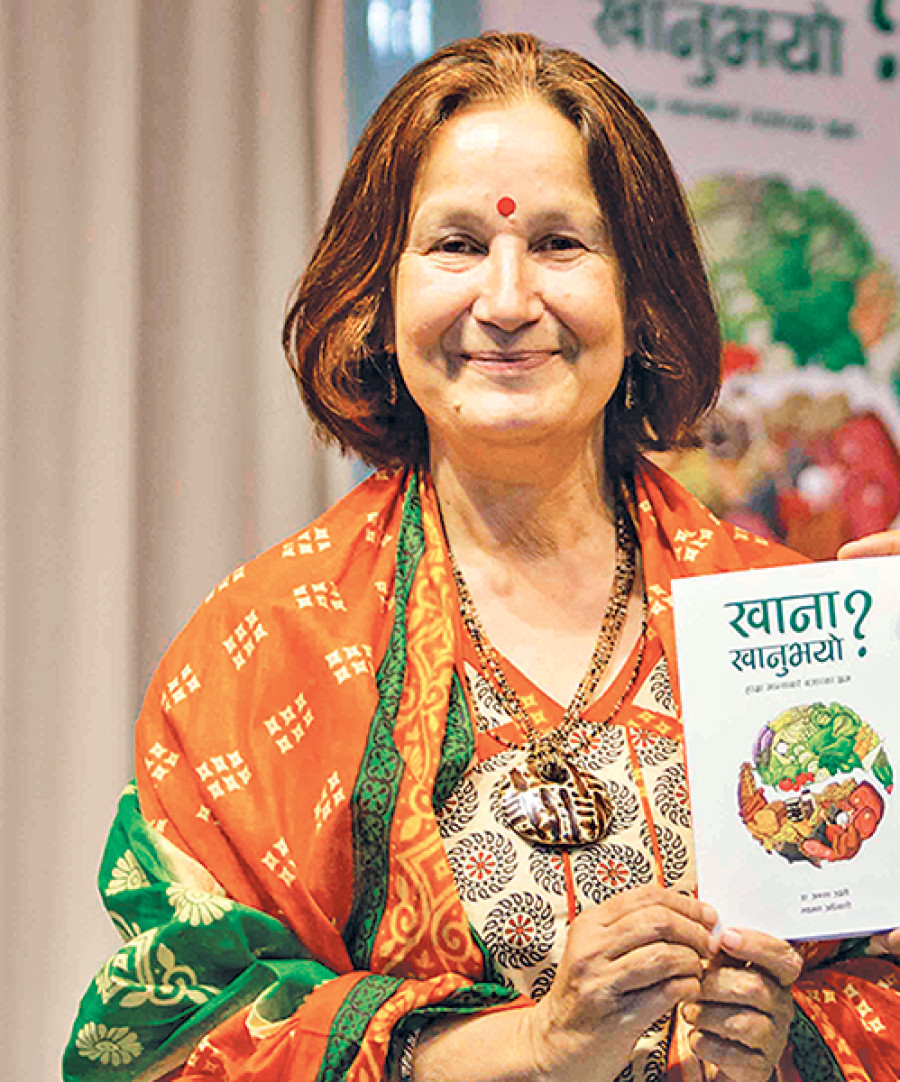Entertainment
You are what you eat
Dr Aruna Uprety, a public health specialist, recently published Khana Khanu Bhayo?—a book that busts myths that revolve around Nepali eating habits.
Dr Aruna Uprety, a public health specialist, recently published Khana Khanu Bhayo?—a book that busts myths that revolve around Nepali eating habits. The book delves into subjects such as dietary habits, nutrition, and how food affects different body systems. In this interview with the Post’s Samikshya Bhattarai, Dr Uprety talks about her book, common food misconceptions and the importance of healthy lifestyle. Excerpts:
Your book delves into many misconceptions Nepalis have about food and dietary habits. What do you identify as some of the biggest misconceptions?
Having worked as a doctor for many years, I travelled to various rural regions of the country. The food habits that I noticed in so many of these regions were completely baffling. For instance, the locals sold their home-grown barley, buckwheat and other whole grains for cheap prices in order to buy overpriced packaged food. The notion that packaged food is better than home-grown ones is widely prevalent in many of these regions. Thanks to the advertising industry that wrongly promotes packaged food as nutritious, people have actually bought into this myth; and exchanging organic food for inorganic food has resulted in the deterioration of health and has setback childhood growth in a lot of rural areas. Urban areas have a different story altogether, fast food and junk food are increasingly becoming an integrated part of the lifestyle here. No matter how appetising the packaged food might seem, they can never beat the nutrition and health benefits that home-grown and home-cooked food provide.
In the book you describe your grandmother’s and your mother’s kitchens as your university. What are your thoughts about the traditional Nepali diet? Is it still relevant to us, now that our lifestyle is changing?
Traditional Nepali food is very nutritious. Lifestyle keeps changing and it has changed a lot, but a Nepali platter constitutes all the nutrition that we need to get through the day. Potato, lettuce, lentils, beaten rice, rice together provide a complete package of carbohydrate, protein, fibres, vitamins and minerals. I don’t really think we need to change our food to lead a healthier lifestyle.
What are five food habits that all people should have and internalise?
First and foremost, if you want to lead a healthy lifestyle always avoid packaged and fast food. As far as possible, eat homemade food. It is a good idea to opt for sprouts—beans and grams—three to four days a week. As enticing as fries are, keep away from fried food. Eat local and seasonal fruits. Eat locally and organically grown foods such as buckwheat, barley, millet among others, as they come with plenty of nutrients. Last but not least, drink plenty of water throughout the day; many health problems arise due to lack of water in the body.
Why was it important for you to write this book?
Even though I am doctor by profession, my passion lies in reading and writing. As a little girl I used to read a lot and later at the age of 11, my father presented me a diary to jot down anything and everything I wanted to write or make a note of. Once I developed the writing habit, there was no looking back. People often confuse me for a writer because I write so many articles. In my three-decade-long career I have collected a lot of knowledge and it felt like the right time to share it with the world. The book is a way of giving back to the society, a tiny contribution.
A large part of getting people to change their habits is motivating them. How have you tried to do that through your book?
When you want to motivate someone change their way of life and their habits, just writing about what is wrong and what is right is not enough. So, instead of just putting a finger on the benefits and drawbacks, or telling people what to do, what I have done is shared real life stories. I want the stories to resonate with the readers, I want them to feel the gravity of what I am saying, and internalise how important health and healthy living really is. The book is full of anecdotes from real cases that I came across during research. I am sure that even if readers don’t change their habits immediately, the book will at least sow the seed of a healthy lifestyle in their minds.
What are some books that you would recommend to people who want to live a healthier lifestyle?
I would advise people to read any book related to healthy lifestyle as they will learn something new about leading a healthy life from every book. For women who have crossed the age of 40 and are moving towards menopause, the book Wisdom of Menopause would be a gem that will help them deal with the hormonal changes that age brings along. Another book I would recommend for the same group is Where Women Have no Doctors.




 9.7°C Kathmandu
9.7°C Kathmandu









